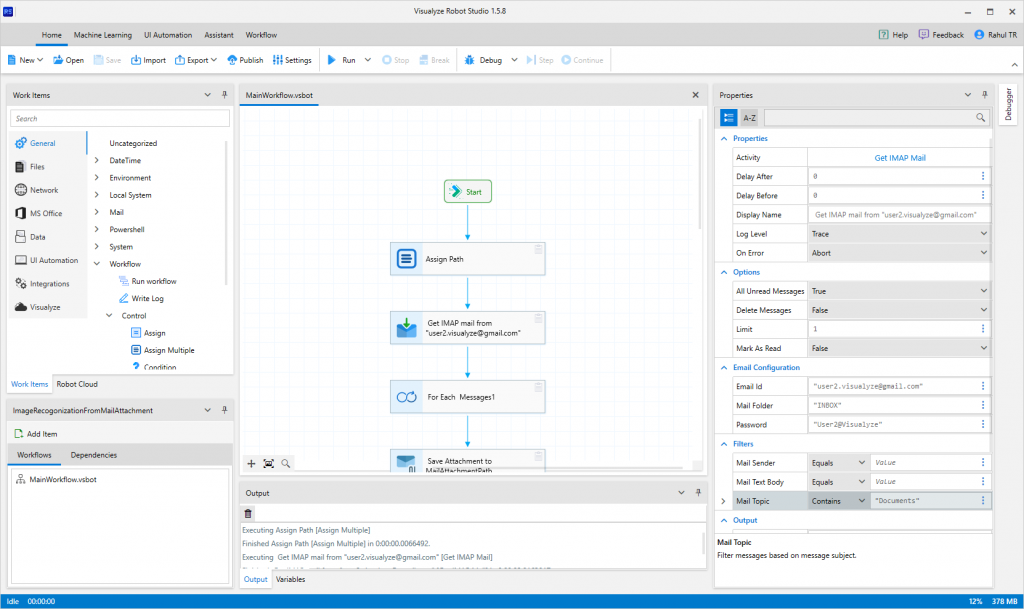Robot Studio
Create intelligent Robots



No code automation development
Get Started with creating robots without writing any code intuitive drag and drop designer and dynamic configuration makes it easy for the user to create and configure process workflows


Automation recorders For capturing processes
Easily capture your UI automation workflows with recorders for Desktop, Web browser and SAP applications. Capture, edit, and share recoded workflows with robots and users.


Built-in packages and Third party integrations
Out of the box packages with support for every automation requirement. Support for files including CSV, Excel, XML, JSON and integrations with AWS, Office365, Azure, GSuite and Google Cloud.


Build machine learning models fast without Python (or Any programming language)
No code builder for creating machine learning models using your own data. Train, finetune and select the best model for your tasks by the AutoML features

Built forconvinence, security and performance
Performance oriented data transformations, audit and analysis logs, workflow validations and assistant tools give you full control of your automations with industry standard security features
Powerful no code data transformations
Built in Integrations
RobotAI supports pretrained models from popular frameworks and libraries
including Tensortflow, Keras, Pytorch, ONNX and H2O
Google Cloud
MS Office
SAP
AWS
Azure
G Suite
All Automation Scenarios Covered
Robot Studio provides development interfaces for desktop, web, console and virtualized applications.
Desktop
Web Browsers
Citrix
Terminals
No-code machine learning development platform
RobotAI is a no-code platform for training custom machine learning models with your own data for a variety of scenarios.
Text classification
Analyze the given text to find the categories that apply to the content of the text. For example, you could train a model to classify email contents to find its sentiment and classify to negative or positive.
Entity Extraction
Analyze the given text to identify and extract known entities contained in the text content. For example, you could train a model to look at customer support emails and extract the products they are talking about and which department is the mail addressed to by extracting product and department entities.
Image Classification
Analyze an image to find the categories that apply to the image. For example, you could train a model that classifies images of car parts to decide if it is defective or not.
Object Detection
Analyze an image and find all the objects found in the image, consisting of a label and bounding box location for each object. For example, you could train a model to find all the bar codes in an image with its location or train a model to find all humans in a factory from the given surveillance image.
Value Prediction
Analyze tabular data and predict a numeric value. For example, you could train a model to estimate the value of a house.
Data Classification
Analyze tabular data and returns a list of categories that describe the data. For example, you could train a model to predict whether the purchase history for a customer predicts that they will buy a subscription or not.
